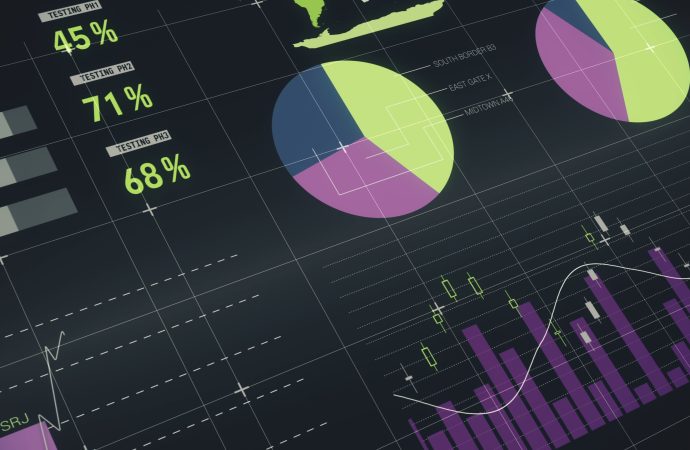The Bank of International Settlements (BIS) recently sounded the alarm about early-stage rate cuts, warning that looser monetary policies could be a risky move for the global economy. The BIS, which acts as a central bank to all other central banks, is concerned that such moves would expose the economy to an increased risk of
The Bank of International Settlements (BIS) recently sounded the alarm about early-stage rate cuts, warning that looser monetary policies could be a risky move for the global economy. The BIS, which acts as a central bank to all other central banks, is concerned that such moves would expose the economy to an increased risk of inflation, while also leading to an increase in financial instability. In this blog post, we will discuss what the BIS said and why its warnings should be taken seriously. We will explore how rate cuts could impact consumer spending and investment decisions, and consider what other measures could be taken in order to ensure the long-term stability of the global economy.
The Bank for International Settlements (BIS) warns that central banks cutting rates too early could be risky
The Bank for International Settlements (BIS) has warned that central banks cutting interest rates too early could be risky. The BIS, which is the world’s oldest international financial institution, said that while rates are at or near historically low levels in many developed economies, there is a risk that central banks could cut rates too early and stoke inflationary pressures.
The BIS said that if inflation does pick up, central banks would then have to raise rates quickly, which could lead to economic instability. It added that central banks should only cut rates if there is a clear need to do so and not as a pre-emptive measure.
The BIS’ warning comes as many central banks around the world are considering further rate cuts in an effort to boost their economies. The US Federal Reserve has already cut rates twice this year and is widely expected to do so again later this month.
BIS cites three dangers of early rate cuts: inflation, financial stability, and moral hazard
In a new paper, the Bank for International Settlements (BIS) has warned that central banks should be careful about cutting interest rates too early in the face of economic headwinds.
The BIS paper cites three dangers of early rate cuts: inflation, financial stability, and moral hazard.
Inflation: The BIS warns that if central banks cut rates too early in the face of economic headwinds, they may unintentionally fuel inflationary pressures. This could lead to higher prices for goods and services, as well as asset price bubbles.
Financial stability: The BIS also warns that early rate cuts could destabilize financial markets and trigger a wave of defaults and bank failures. This could ultimately lead to a financial crisis.
Moral hazard: Finally, the BIS paper warns that early rate cuts could create moral hazard problems. If investors believe that central banks will always bail them out by cutting rates, they may take on more risk than they can handle. This could eventually lead to another financial crisis.
Inflation: Lower rates could lead to higher inflation expectations, which in turn could lead to actual higher inflation
Inflation is one of the most important factors that central banks take into account when setting monetary policy. In recent years, inflation has been relatively low and stable in developed economies. However, some economists are warning that early interest rate cuts could lead to an increase in inflation expectations, which in turn could lead to actual higher inflation.
The Bank for International Settlements (BIS) is an organization that represents central banks from around the world. In their latest annual report, the BIS sounded an alarm about the possibility of early interest rate cuts leading to higher inflation. They warned that such a scenario could “pose significant risks” to global economic stability.
The BIS’ warnings come at a time when many central banks are considering cutting interest rates in order to boost economic growth. The United States Federal Reserve is widely expected to cut rates later this year, and the European Central Bank has already started cutting rates and increasing its asset purchase program.
While lower interest rates can help boost economic growth in the short-term, the BIS warns that it could also lead to higher inflation expectations and actual higher inflation in the long-term. They argue that central banks need to be mindful of these risks when setting monetary policy.
Financial Stability: Early rate cuts could add to the already high levels of debt and increase the risk of financial instability
BIS Sounds Alarm: Early Rate Cuts Could Be Risky Business
The Bank for International Settlements (BIS) has warned that central banks risk fuelling financial instability by cutting interest rates too early in the economic cycle.
In its latest annual report, the BIS said that while monetary policy remained “effective” in boosting growth and inflation in the wake of the global financial crisis, there were signs that it was losing its potency.
It added that there was a risk that central banks could end up “pushing on a string” if they cut rates too early in the cycle and ended up having to resort to more unconventional measures such as quantitative easing.
The BIS also sounded a warning about the high levels of debt being accumulated by both households and governments, saying that this could lead to a “debt trap” where low interest rates make it hard to service debts and eventually lead to defaults.
The report comes as central banks around the world are coming under pressure to cut rates in an attempt to stave off a possible recession. The US Federal Reserve is widely expected to cut rates later this month, while the European Central Bank is also considering further stimulus measures.
Moral Hazard
Moral hazard refers to the increased likelihood of risky behavior when individuals are shielded from the consequences of that behavior. In the context of monetary policy, moral hazard can arise when central banks pursue an easy monetary policy in order to boost economic activity. This can encourage households and businesses to take on more debt than they otherwise would, leading to greater financial instability down the road.
The Bank for International Settlements (BIS) has sounded the alarm on this risk, warning that early interest rate cuts could create moral hazard and lead to future financial instability. In its annual report, the BIS warned that “excessive accommodation” by central banks could lead to a build-up of debt and eventually cause a sharp increase in borrowing costs. The BIS urged central banks to be vigilant about these risks and tighten monetary policy before it’s too late.
This is a serious warning from a respected institution, and it should be heeded by policymakers around the world. Easy monetary policy may provide a short-term boost to economic activity, but it comes with the risk of creating moral hazard and ultimately harming long-term stability.





















Leave a Comment
Your email address will not be published. Required fields are marked with *